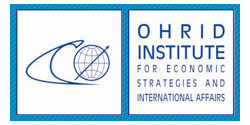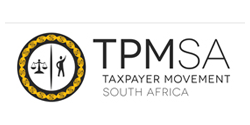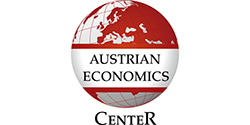Misleading Claims about Multi-National Corporate Tax Avoidance

Global political leaders can’t seem to agree on much these days, except perhaps for one thing: cracking down on corporate tax avoidance. Over the past few months, more than 100 countries have signed on to the Inclusive Framework sponsored by the Organisation for Economic Cooperation and Development (OECD), which sets common rules for addressing base erosion and profit shifting, commonly known as BEPS.
Despite the stampede to address this issue, it is still an open question as to how much corporate tax avoidance is actually draining government coffers and what harm, if any, it is having on the global economy.
Activist groups that have pushed for these rules, such as the Tax Justice Network and Oxfam, say BEPS is denying developing countries of the resources they need to grow and deliver important services such as health care and education. The recent Oxfam report “Making Tax Vanish”, claims that “tax avoidance hits the poorest the hardest…Reduced quality and accessibility of these essential services means that women and girls often fill the gap through unpaid or low-paid work. Societies become more unequal, as it becomes harder for those at the bottom to improve their lives and escape poverty.”
So how much is tax avoidance by multinational enterprises (MNEs) costing developing nations? Estimates vary widely, but Oxfam points to a 2015 report by the United Nations Conference on Trade and Development (UNCTAD) which estimates that BEPS cost developing countries $90 billion in 2012. Developed countries, by contrast, lost an estimated $110 billion.
While $90 billion is surely a lot of money, it turns out that MNEs already contribute quite a lot to developing nations through corporate income taxes, social insurance taxes, and natural resource royalties. These taxes are in addition to the capital investments MNEs make in developing countries.
UNCTAD estimated that the foreign affiliates of MNEs paid as much as $730 billion in total taxes on the profits generated by some $5 trillion in capital investments they had in developing countries as of 2012. Corporate income taxes amounted to $220 billion in revenues, taxes on trade and social insurance contributions added another $210 billion, while taxes on property and natural resource extraction totaled roughly $300 billion.
Relative to their profits in these countries, the amount of taxes paid by MNE foreign affiliates is not trivial. UNCTAD estimated that “the total contribution to government revenues represents about 50 percent of foreign affiliate commercial profits, with minor variations by region.” So foreign firms are basically splitting their profits with developing nations.
As large as these tax payments are in cash terms, they represent a very small share (10 percent) of the $6.9 trillion in total tax revenues collected by developing nations in 2012. If countries were to capture the $90 billion in revenues “lost” to tax avoidance, it would lift that share to 11 percent, equal to adding one more penny of tax revenues to every $1 collected by these developing nations.
Domestic corporations are far more important taxpayers in developing countries, contributing more than one-third ($2.5 trillion) of the total tax revenues collected.
These facts run completely contrary to the narrative maintained by development activists that raising taxes on multinational firms is key to funding essential public services.
Another revealing finding of the UNCTAD report is that tax avoidance seemingly has no impact on reducing the effective tax rates (ETRs) paid by foreign firms relative to their domestic counterparts. UNCTAD’s own firm-level analysis “finds that the ETRs for foreign affiliates and domestic firms are substantially aligned. Other studies have also found no evidence of a substantial difference in ETR between domestic companies and MNEs.” [Emphasis added]
If foreign and domestic firms have the same ETRs despite all the alleged tax avoidance, what does this say about profit shifting being a “problem”? It could mean that domestic firms are as adept at tax avoidance as foreign firms. (Which is plausible in some developing countries where corruption is a major issue; although the same findings hold for developed countries as well.)
More likely, it means that BEPS is not as big of a problem as the activists and bureaucrats at the OECD suggest it is. This is sort of like caffeine in coffee. There is such a thing as a lethal dose of caffeine. But a few cups of coffee a day is not going to kill you.
As if to undermine the significance of their own estimates of tax avoidance, UNCTAD researchers issued this warning to global leaders: “[A]ny policy action aimed at increasing fiscal contribution and reducing tax avoidance, including the policy actions resulting from the BEPS project, will also have to bear in mind the first and most important link: that of tax as a determinant of investment.”
In other words, taxes matter a lot to investment decisions. Therefore, development activists and global tax collectors have a choice: they can try to collect that last penny of tax revenue from MNEs, or they can have the investment projects that MNEs make possible. They just can’t have both.
It may be too late. With more than 100 nations committed to addressing BEPS, it seems as though the global community is speeding down the path of creating a solution more harmful than the “problem” itself. If global investment stalls as a result, the poor will then truly suffer.
Scott Hodge is president of the Tax Foundation, a non-partisan tax research organization in Washington, D.C.














































